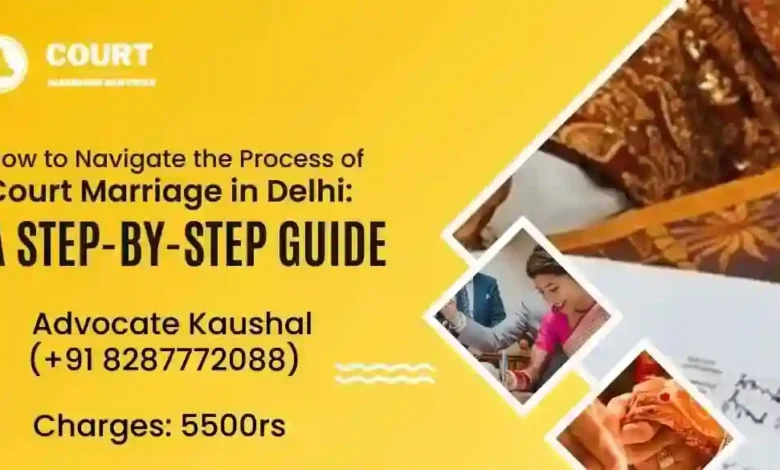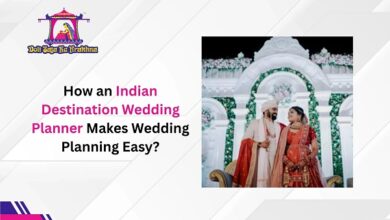Process of Court Marriage in Delhi – A Comprehensive Guide

Understanding the Process Of Court Marriage in Delhi can simplify what often feels like a complex legal procedure. Whether you’re a resident, an NRI, or from another state, following the correct steps ensures your marriage is legally valid under the Special Marriage Act, 1954. Court Marriage Advocate Kaushal has helped hundreds of couples navigate this journey smoothly. Here’s a detailed, step-by-step guide to the process of court marriage in Delhi.
1. Eligibility Criteria
Before you begin the process of court marriage in Delhi, ensure you meet the basic requirements:
- Age: Groom must be at least 21, bride at least 18.
- Marital Status: Both parties must be unmarried, divorced, or widowed.
- Residency: At least one partner should have resided in Delhi for a minimum of 30 days.
If you fulfill these criteria, you can proceed with the official formalities.
2. Notice of Intended Marriage
The first formal step in the process of court marriage is filing a notice of intended marriage at the local Marriage Registrar’s office.
- Form Filling: Complete Form I with details such as names, addresses, ages, and marital status.
- Submission: Submit the filled form along with supporting documents: passports, birth certificates, Aadhar cards, and passport-size photos.
- Fee: Pay the prescribed fee (varies by district).
Upon acceptance, the registrar will publish your notice on the office notice board.
3. Mandatory Waiting Period
After notice publication, the process of court marriage in Delhi includes a 30-day waiting period:
- Purpose: Allows any objections to the proposed marriage.
- Objections: If someone raises an objection, you must address it legally before proceeding.
No objections within 30 days? Then you’re ready for the next step.
4. Document Verification and Affidavits
As you near the end of the waiting period, prepare for document verification—an essential part of the process of court marriage in Delhi.
- Affidavits: Both partners must sign affidavits stating their marital status and willingness to marry.
- Witnesses: Arrange three adult witnesses with valid IDs (Aadhar or passport).
- Original Proofs: Keep original documents ready for verification by the Marriage Registrar.
Advocate Kaushal can help draft and notarize these affidavits correctly.
5. Marriage Ceremony at the Registrar’s Office
On the appointed date, the process of court marriage in Delhi culminates in a brief ceremony:
- Presence: Bride, groom, three witnesses, and the registrar must be present.
- Declaration: Partners declare their intent to marry and sign the marriage register.
- Registrar’s Signature: The official completes the registration by signing the certificate.
This civil ceremony takes around 15–30 minutes, with no religious rituals required.
6. Issuance of Marriage Certificate
After the ceremony, the final step in the process of Court Marriage in Delhi is obtaining your marriage certificate.
- Certificate Collection: Typically available within a few days.
- Legal Proof: This certificate is recognized nationwide and internationally as proof of marriage.
- Document Use: Use it for passport joint applications, visa processing, and spousal benefits.
Keep multiple certified copies for future legal and administrative needs.
Tips for a Smooth Process
- Advance Planning: Book your slot at the registrar’s office well ahead of time.
- Complete Documentation: Double-check document lists to avoid last-minute hiccups.
- Legal Support: Consult Advocate Kaushal for personalized guidance and to handle objections.
- Timely Follow-Up: Track your application and certificate status through the registrar’s portal.
Following these tips ensures a stress-free process of court marriage in Delhi.
Conclusion
The process of court marriage in Delhi may involve several steps—notice filing, waiting period, document verification, ceremony, and certificate issuance—but with proper preparation and expert guidance from Court Marriage Advocate Kaushal, it becomes straightforward and efficient. Embrace this modern, inclusive way to formalize your union and enjoy the legal benefits of a registered marriage under the Special Marriage Act.




